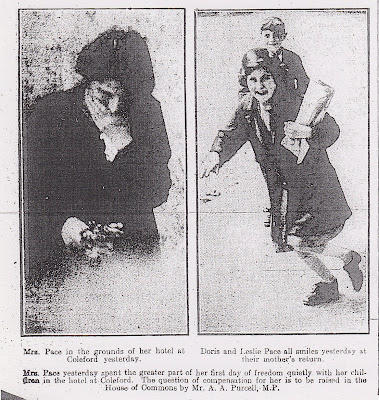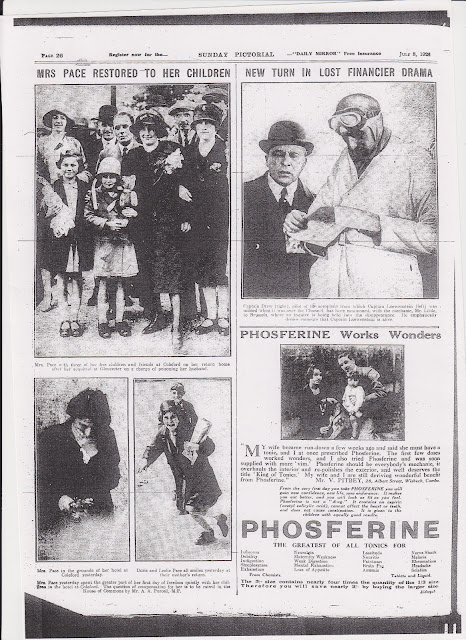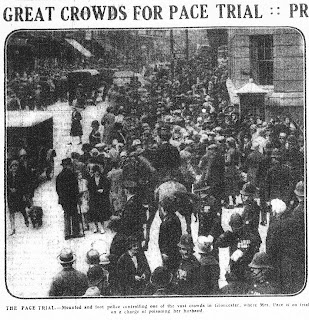Titled 'A Talk to Wives, by Mrs. Pace', the article is presented in part as a reaction to the letters that Beatrice has been sent by the public. (One chapter in the book deals with the fascinating and often poignant letters received by Beatrice Pace from her admirers.)
There are suggestions that some of these letters might have made some criticisms about the decisions she had made.
Because it deals so extensively with the issue of domestic violence -- accusations of which featured prominently in the case -- and Beatrice's reactions to it, it is worth quoting a section of the article at length.
‘Since I began my story in the “Sunday Express” I have had hundreds of letters from women, all of them kind, but many of them saying what amounts to this:
You have had a terrible time in your married life: you have suffered terrible pain and anxiety in being accused of a murder you did not commit.
Your husband treated you worse than an animal, and yet expected you to mother his children and keep his home.
Why were you such a fool as to put up with it? We would not have done so for a week, let alone eighteen years. We would have run away.
That is the question I have been asked, and I think I can answer it.
I do not believe that the women who say they would have run away would really have done so.
There are things in married life which unmarried women cannot understand and which even married women who have kind husbands cannot understand. There are things deep down in us that only experiences like mine can make use realise—feelings and ideas that a happy life doesn’t bring out.
It is easy to talk of running away when there is nothing to run from, when you are free, and have no responsibilities and no ties.
A woman thinks then that she is going to be the master—that the can do as she likes, and that if anything goes wrong she has only to walk out like a cook giving notice.’
‘When you are poor and married and trouble comes, you begin to realise that you have got to light the world together, even if you are fighting each other at the same time. It is difficult for me to explain what I mean—I’m not a writer—but it seems to me like this:
You feel that you mustn’t just turn your back and run away from things like a coward.
You feel that you’ve got to fight for what you’ve got, to keep it and to make it better.
And whatever love there is in your life you feel you want to keep it alive.
I felt I was keeping my love for Harry alive by sticking to him and putting up as best I could with the things he did.
Then there were the children […]
Anyway, I felt that because I had suffered for them, it was a proof that I had something to love and to work for. Another thing was that they made me feel closer to Harry—not the Harry who beat me, but the Harry I thought of as my husband.
They seemed to be the better part of him, and I often used to think as I held them in my arms, “Here I hold all that Harry might have been to me.”’
('A Talk to Wives, by Mrs. Pace', Sunday Express, 28 July 1928, p. 14. Emphasis in original.)

















